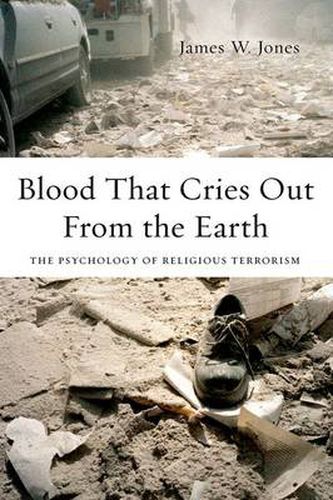Readings Newsletter
Become a Readings Member to make your shopping experience even easier.
Sign in or sign up for free!
You’re not far away from qualifying for FREE standard shipping within Australia
You’ve qualified for FREE standard shipping within Australia
The cart is loading…






Religious terrorism has become the scourge of the modern world. What causes a person to kill innocent strangers in the name of religion? As both a clinical psychologist and an authority on comparative religion, James W. Jones is uniquely qualified to address this increasingly urgent question. Research on the psychology of violence shows that several factors work to make ordinary people turn evil. These include feelings of humiliation or shame, a tendency to see the world in black and white, and demonization or dehumanization of other people. Authoritarian religion or fundamentalism, Jones shows, is a particularly rich source of such ideas and feelings, which he finds throughout the writings of Islamic jihadists, such as the 9/11 conspirators.
Jones goes on to apply this model to two very different religious groups that have engaged in violence: Aum Shinrikyo, the Buddhist splinter group behind the sarin gas attacks in the Tokyo subway system, and members of the extreme religious right in the U.S. who have advocated and committed violence against abortion providers. Jones notes that not every adherent of an authoritarian group will turn to violence, and he shows how theories of personality development can explain why certain individuals are easily recruited to perform terrorist acts.
$9.00 standard shipping within Australia
FREE standard shipping within Australia for orders over $100.00
Express & International shipping calculated at checkout
Religious terrorism has become the scourge of the modern world. What causes a person to kill innocent strangers in the name of religion? As both a clinical psychologist and an authority on comparative religion, James W. Jones is uniquely qualified to address this increasingly urgent question. Research on the psychology of violence shows that several factors work to make ordinary people turn evil. These include feelings of humiliation or shame, a tendency to see the world in black and white, and demonization or dehumanization of other people. Authoritarian religion or fundamentalism, Jones shows, is a particularly rich source of such ideas and feelings, which he finds throughout the writings of Islamic jihadists, such as the 9/11 conspirators.
Jones goes on to apply this model to two very different religious groups that have engaged in violence: Aum Shinrikyo, the Buddhist splinter group behind the sarin gas attacks in the Tokyo subway system, and members of the extreme religious right in the U.S. who have advocated and committed violence against abortion providers. Jones notes that not every adherent of an authoritarian group will turn to violence, and he shows how theories of personality development can explain why certain individuals are easily recruited to perform terrorist acts.